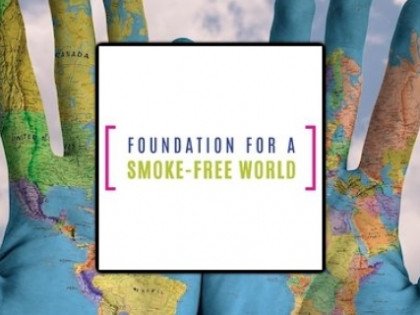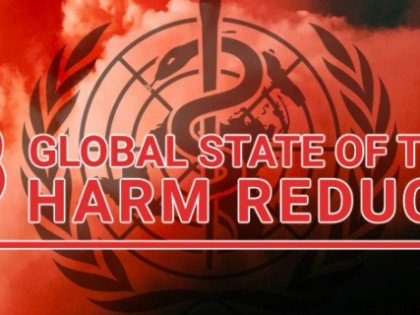Claiming that the paper was published in January of this year is just the first of Glantz’ errors of judgement. In just his third sentence, he hyperlinks to “evidence” of children being attracted to flavours that is nothing more than a search page on the Centre For Tobacco Control’s (CTC) website – a site run by himself and funded by, well, we’ll see in a minute. Suffice to say that what is being presented is far from evidence.
Nicotine and Tobacco Research, the publication that carried Shiffman’s research, refused to publish Glantz’ letter of complaint. In it he alleges that the authors carried out a flawed methodology and failed to declare how the sponsors (NJOY) might have influenced the findings.
He says: “There are also serious concerns about the ethics of the study. For these reasons the scientific community and regulatory bodies should not rely on the results in Shiffman, et al.’s paper for assessing the impacts of flavours on e-cigarette use.”
There is more than a kernel of truth in what he claims – but, as pointed out by tobacco harm reduction specialist Carl Phillips: “a stopped clock is right twice a day, though is seldom so deliciously ironic when it is.”
He continues: “Glantz does not understand human subjects ethics rules any better than he understands scientific inference, epidemiology, toxicology, the difference between liquids and solids, etc.”
But it is not the limitations to Glantz’ abilities that constructs his sunny, outdoor home for plants; Glantz receives funding in order to run the CTC site and write his letters.
Commenting on the ideological bias that dominates electronic cigarette debate, Jean-François Etter writes: “The debate is loud but lacks robustness, and there is often an ideological bias against, and a lack of understanding of, harm reduction principles. There is also a willingness of the press and some scientists to emphasize the negative effects of e-cigarettes. In particular, press releases issued by scientists or by their institutions sometimes do not reflect research findings.”
A bias illuminated by Brad Rodu on the Tobacco Truth blog in an article headed NIH (The National Cancer Institute) Funding Stifles Tobacco Harm Reduction Research and Support in Academia.He states: “In countless discussions about smoking’s devastation, people ask me: ‘If tobacco harm reduction is a viable quit-smoking option with huge public health benefits, why don’t U.S. medical schools advocate this concept? Why are you almost alone among American university professors in openly endorsing tobacco harm reduction?’ The answer resides within a powerful government agency, the National Institutes of Health.”
The NIC website declares their vision as being a world free of tobacco use and related cancer and suffering. Rodu expands: “NIH dollars are vitally important to faculty and to institutions. Agency grants cover direct research costs, which typically pass through the university as faculty, staff and graduate student salaries, equipment and other project-specific charges. More importantly, the NIH also covers indirect costs, which are not specific to the project but involve administration and facility support. These are negotiated by each university, and they range from 25% to 100+% of direct costs.”
So that’s 6.61 million reasons why Glantz ought to be more open about why he insists on pushing fake science – and why he is the very last academic who ought to be lobbing lumps of granite about.
Photo Credit:
Table from Tobaccotruth blog
Dave Cross
Journalist at POTVDave is a freelance writer; with articles on music, motorbikes, football, pop-science, vaping and tobacco harm reduction in Sounds, Melody Maker, UBG, AWoL, Bike, When Saturday Comes, Vape News Magazine, and syndicated across the Johnston Press group. He was published in an anthology of “Greatest Football Writing”, but still believes this was a mistake. Dave contributes sketches to comedy shows and used to co-host a radio sketch show. He’s worked with numerous start-ups to develop content for their websites.
Join the discussion
Foundation Splits From Tobacco Funding
With a new President and Chief Executive Officer at the helm, the Foundation for a Smoke-Free World has acted to eschew tobacco industry funding and seeks wider cooperation and understanding
GSTHR THR Groups Briefing Paper
The Global State of Tobacco Harm Reduction (GSTHR) has released a new Briefing Paper looking at tobacco harm reduction consumer advocacy groups - and notes their exclusion from COP10
CRUK: The Government Is Failing on Cancer
Cancer Research UK has accused the Government of failing on cancer and demanded that MPs reinstate funding for the annual No Smoking Day
INNCO Funding Change
The International Network of Nicotine Consumer Organisations has ceased receiving funding from the Foundation for a Smoke-Free World






-listing400.jpg)




